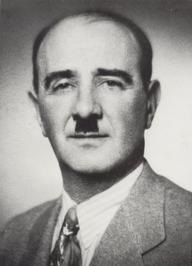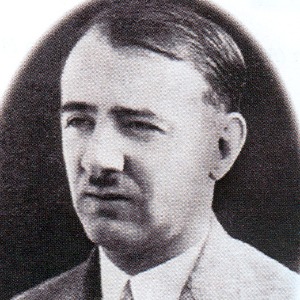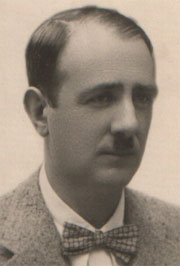Mehmet Fuat Köprülü facts for kids
Quick facts for kids
Mehmet Fuat Köprülü
|
|
|---|---|
 |
|
| Minister of Foreign Affairs of Turkey | |
| In office 22 May 1950 – 15 April 1955 |
|
| Preceded by | Necmettin Sadak |
| Succeeded by | Adnan Menderes |
| In office 9 December 1955 – 20 June 1956 |
|
| Preceded by | Adnan Menderes |
| Succeeded by | Fatin Rüştü Zorlu |
| Turkish Deputy Prime Minister | |
| In office 29 July 1955 – 9 December 1955 |
|
| Preceded by | Fatin Rüştü Zorlu |
| Succeeded by | Ahmet Tevfik İleri |
| Personal details | |
| Born | December 4, 1890 Istanbul, Ottoman Empire (modern Turkey) |
| Died | June 28, 1966 (aged 75) Istanbul, Turkey |
Mehmet Fuat Köprülü (born December 5, 1890 – died June 28, 1966) was a very important Turkish scholar and politician. He was known for studying societies (a sociologist) and Turkish history and culture (a Turkologist). He also served as the Minister of Foreign Affairs and Deputy Prime Minister for the Republic of Turkey.
Fuat Köprülü came from the famous Köprülü family. This family had many powerful leaders in the past. He played a big role in both education and politics in Turkey during the early 1900s.
Contents
Early Life and Education
Fuat Köprülü was born in Istanbul in 1890. His full name was Köprülüzade Mehmed Fuad. His father was Faiz Efendi, an Islamic judge. His mother, Hatice Hanim, was the daughter of an Islamic scholar.
His family had a long history of important people. His grandfather was an ambassador. His great-grandfather was a high-ranking official. This family was known for its Grand Viziers (like prime ministers) in the 1600s. They helped the Ottoman Empire stay strong for a long time. Fuat Köprülü was named after Köprülü Mehmed Pasha, a famous Grand Vizier.
Fuat Köprülü went to Ayasofya Middle School and Mercan High School. These schools were part of new education changes in the Ottoman Empire. When he was only 15, a magazine published three of his poems. At 17, he started studying law at Istanbul University School of Law. He already knew French, Persian, and Arabic very well. His first book, Hayat-i Fikriyye (The Intellectual Life), came out when he was 19. He left law school after three years because he felt the teaching was not good enough.
Career Highlights
Becoming a Nationalist Thinker
From 1910 to 1913, Fuat Köprülü taught Ottoman language and literature. He taught at several high schools in Istanbul, including the well-known Galatasaray High School. At first, he didn't like a new writing style called "New Language." This style aimed to make Turkish simpler. He wrote articles using very complex language.
However, during the Balkan Wars, he changed his mind. These wars were a difficult time for the Ottoman Empire. In 1913, a magazine called Türk Yurdu started publishing his articles. This magazine used simpler Turkish and supported Turkish nationalism. Fuat Köprülü wrote many popular and patriotic essays for them. Some titles were "Hope and Determination" and "A Turk's Prayer." He also wrote for other important magazines that supported the Turkish War of Independence.
New Ways to Study History
In late 1913, Fuat Köprülü published a very important article. It was called "The Method in Turkish Literary History." In this article, he said that historians should study more than just kings and leaders. He believed they should also research everyday people.
He thought historians should look at art, old buildings (archeology), literature, language, and folk stories. This idea was very new for his time. A famous group of historians in France, the Annales school, started using a similar approach much later. Just one month after his article came out, Fuat Köprülü became a Professor of Turkish literature history. He was only 23 years old.
Fuat Köprülü kept doing his research and writing books. In 1918, he published his major work, The First Mystics in Turkish Literature. This book was about two Turkish poets, Ahmet Yesevi and Yunus Emre. In 1920, his book Turk Edebiyati Tarihi (History of Turkish Literature) came out. It covered the history of Turkish literature over thousands of years. In 1923, at 33, he became the Dean of Literature at Istanbul University. That same year, he wrote The History of Turkey, looking at the history of Turks from ancient times to the Ottoman Empire.
Working with Atatürk
Fuat Köprülü was asked by President Atatürk to work as an undersecretary for the Minister of Education. He stayed in this job for eight months. Atatürk also appointed him director of the Turcology Institute. This institute studied Turkish culture and history. Fuat Köprülü started publishing Turkiyat Mecmuasi (The Turcology Journal) there.
From 1936 to 1941, Köprülü was the main editor of Ülkü. This was an official magazine of the Ankara People House. These cultural centers were set up by Atatürk.
Gaining International Fame
Fuat Köprülü also received many awards from other countries for his studies. In 1925, the Soviet Academy of Sciences made him a member. The University of Heidelberg gave him an honorary degree in 1927. The University of Athens and the University of Paris (Sorbonne) also gave him honorary doctorates. Many European and American groups that studied Eastern cultures made him a member.
In 1933, Fuat Köprülü became a "professor ordinarius." This was the highest rank for a professor in Turkey. In 1935, he gave important talks in Paris about how the Ottoman Empire started. He argued that ethnic Turks created the Ottoman Empire. He said they used ideas from earlier Turkish states. This was different from what many Western scholars believed at the time.
Later Political Career
In 1935, President Atatürk asked Fuat Köprülü to join the Turkish Parliament. He was elected as a representative for Kars. He was re-elected in 1939 and 1943. After World War II, people wanted Turkey to have more than one political party. In 1945, Fuat Köprülü joined the opposition. He was removed from the ruling party along with Adnan Menderes and Refik Koraltan.
In 1946, Köprülü, Menderes, Koraltan, and Celal Bayar started the Democratic Party. When the Democratic Party won the elections in 1950, Fuat Köprülü became the Minister of Foreign Affairs. He held this position until 1955. In 1953, he made an agreement with Yugoslav President Tito. This agreement helped Albanians move from Yugoslavia to Turkey. He also believed that it was good for Cyprus to remain under British rule. In 1955, he also served briefly as Deputy Prime Minister.
In 1957, Fuat Köprülü left the Democratic Party. He disagreed with the party leaders, who he felt were becoming too strict. He then joined the Liberty Party. After a military takeover in 1960, he was put on trial. However, he was found not guilty.
Death
Fuat Köprülü passed away on June 28, 1966.
Works
Fuat Köprülü was a very productive scholar and public figure. He wrote over 1500 poems, essays, articles, and books. A scholarship program has been set up in his name. It helps Turkish students study for their PhDs at the University of Cambridge.
Here are some of his important works:
- Yeni Osmanlı Tarih-i Edebiyatı (1916)
- Türk Edebiyatında İlk Mutasavvıflar (1918)
- Nasrettin Hoca (1918)
- Türk Edebiyatı Tarihi (1920)
- Türkiye Tarihi (1923)
- Bugünkü Edebiyat (1924)
- Azeri Edebiyatına Ait Tetkikler (1926)
- Milli Edebiyat Cereyanının İlk Mübeşşirleri ve Divan-ı Türk-i Basit (1928)
- Türk Saz Şairleri Antolojisi (1930–1940, three volumes)
- Türk Dili ve Edebiyatı Hakkında Araştırmalar (1934)
- Anadolu’da Türk Dili ve Edebiyatı’nın Tekamülüne Bir Bakış (1934)
- Osmanlı Devleti’nin Kuruluşu (1959)
- Edebiyat Araştırmaları Külliyatı (1966)
- İslam ve Türk Hukuk Tarihi Araştırmaları ve Vakıf Müessesesi (1983)
Translated Works
Some of his books have been translated into English:
- The Origins of the Ottoman Empire, translated by Gary Leiser. SUNY Press, 1992.
- The Seljuks of Anatolia: their history and culture according to local Muslim sources, translated by Gary Leiser. University of Utah Press, 1992.
- Islam in Anatolia after the Turkish Invasion (Prolegomena), translated by Gary Leiser. University of Utah Press, 1993.
- Some Observations on the Influence of Byzantine Institutions on Ottoman Institutions, translated by Gary Leiser. Türk Tarih Kurumu, 1999.
- Early Mystics in Turkish Literature, translated by Gary Leiser and Robert Dankoff. Routledge, 2006.



